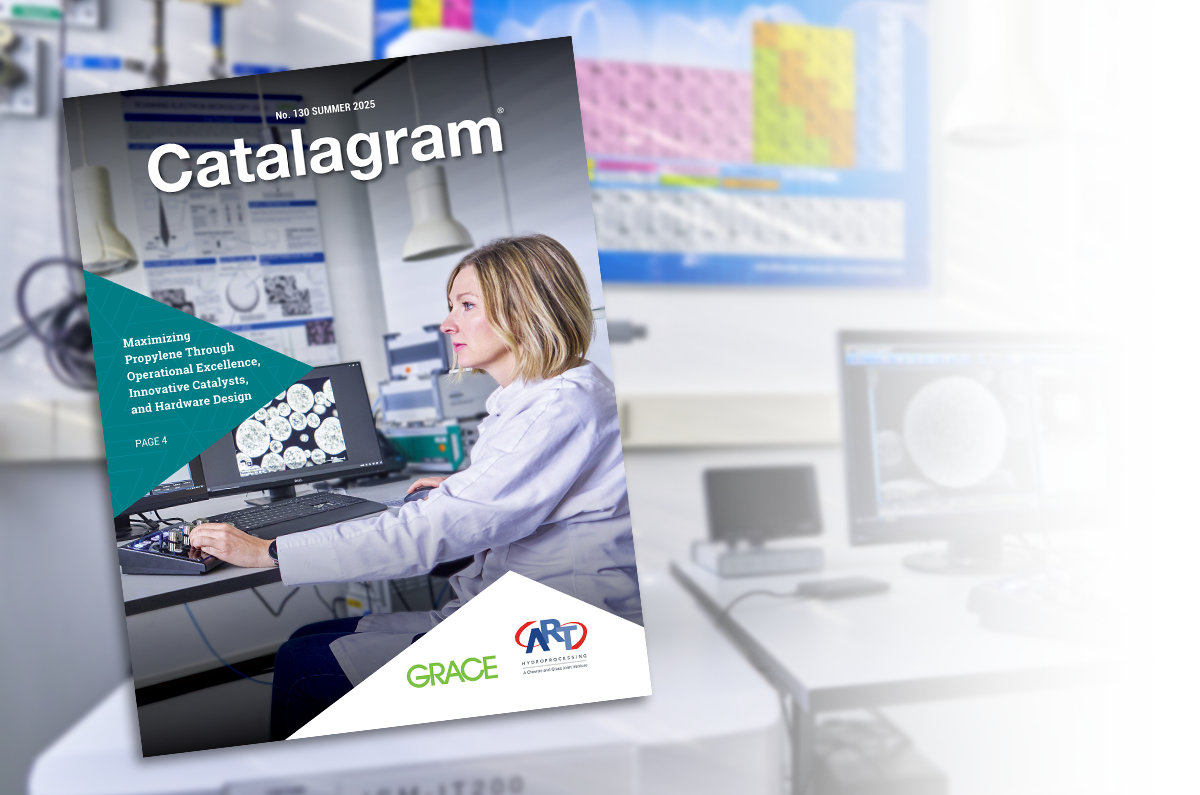FCC Catalyst Sustainability
Catalysts are materials that enable chemical reactions that would otherwise require significantly more severe conditions and would proceed with dramatically lower efficiencies. In this way, the use of catalysts promotes much higher levels of efficiency, or makes chemical products for everyday life that would not be possible otherwise.
Production of modern fuels and chemicals is enabled by the modern FCC process (Fluidized Catalytic Cracker), and FCC catalysts are at the heart of the process. Core to Grace’s approach to FCC catalysts is to drive continuous innovation in our products, which drives efficiency for our customers and creates opportunities to reduce the environmental impact of our customers’, and our own, processes.
Prior to the invention of upgrading processes in the refinery, liquid fuels were produced by distilling crude oils. A typical crude oil may contain about 15% naphtha. To produce the liquid fuels consumed today without upgrading processes like the FCC would require many times the amount of crude oil and would generate extreme waste in resources – while producing fuels which themselves were of significantly poorer quality. Processes like the FCC, and others in the refinery, act to make highly efficient use of each barrel of crude oil, both by upgrading the heaviest parts of the oil to lighter, more usable products, and by improving the quality of the fuel to match today’s highly efficient engine standards.
Sustainability at Grace
At Grace, our commitment to our Environmental, Social, and Governance obligations is a top priority. Review our corporate Sustainability metrics.
